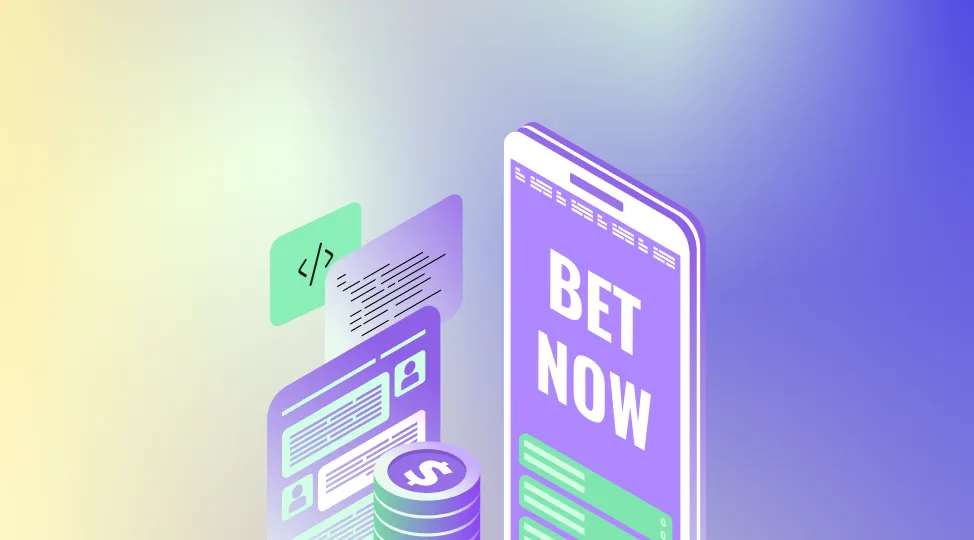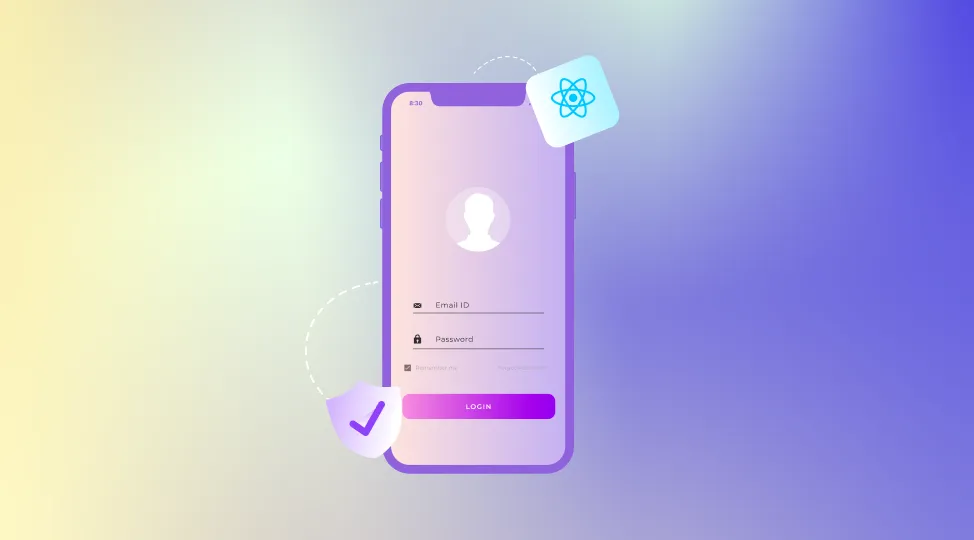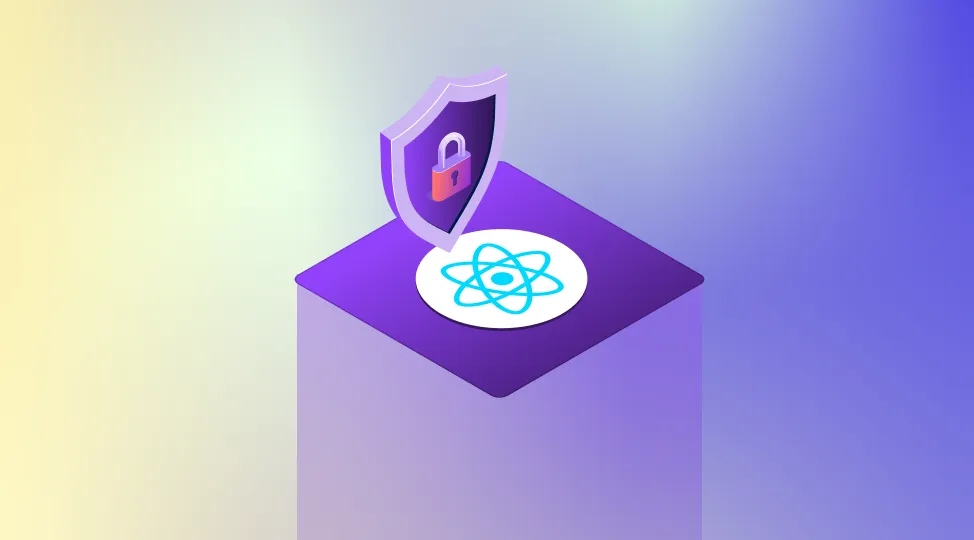Today's leading apps go beyond appointment reminders or fitness tracking. They detect early-stage diseases, monitor chronic conditions using real-time data, support doctors with diagnostic suggestions, and guide patients through treatment plans using intelligent chatbots.
For teams evaluating AI apps in healthcare, these capabilities are now mainstream and measurable.
This blog explores how AI transforms healthcare app development, its benefits to patients and providers, and integrate AI in healthcare apps. If you're planning to develop your intelligent healthcare solution, this is where your roadmap begins.
The Rise of AI in Healthcare
AI in Healthcare is fast becoming the silent engine of modern care. From predictive diagnostics to intelligent automation, AI apps in Healthcare are reshaping how services are delivered, managed, and experienced - end to end.
From Step Counters to Smart Diagnostics
We started with simple trackers, like steps, heart rate, and calories. In 2025, healthcare mobile apps go much further: flagging issues on X-rays, spotting early symptoms, and guiding patients in real time via virtual assistants. It’s a big leap from basic tracking to truly intelligent analysis.
The leap from basic tracking to intelligent analysis marks a turning point in the evolution of healthcare mobile apps.
Demand Is Driving Innovation
Patients now expect more than generic care. They want real-time insights, tailored recommendations, and seamless access to services—all from their phones.
At the same time, providers are under pressure to improve accuracy, reduce costs, and manage patient loads without compromising care quality.
This dual demand—speed and personalization—is precisely where AI delivers.
Growth Backed by Data
The healthcare AI market is growing at an unprecedented rate. Research from MarketsandMarkets projects the global healthcare AI industry to reach over $148 billion by 2029.
Mobile-first platforms are central to this growth, thanks to their accessibility, user-friendliness, and ability to support AI models at scale.
Emerging Use Cases Across the Ecosystem
AI is now embedded across the journey: symptom triage before a visit, earlier and more accurate diagnostics, and behind-the-scenes automation for billing, transcription, and claims. The result - clinicians spend more time on care, not clicks. The rise of AI apps in Healthcare isn’t a trend; it’s a strategic shift for the whole industry.
👉 Want to build more innovative solutions with real-world impact? Explore our AI development services to bring your healthcare vision to life.
Top Use Cases of AI in Healthcare Apps in 2025
As healthcare increasingly digitizes, artificial intelligence moves beyond the hype into efficient, scalable solutions. From real-time diagnostics to operational automation, AI apps in healthcare are now essential to delivering care, primarily through mobile-first experiences. Below are the most impactful AI use cases transforming healthcare mobile app development in 2025. For many providers, AI healthcare apps are now the front door to digital care.

Diagnostic Assistance & Early Detection
Turning Images Into Intelligence
One of the most advanced applications of AI is medical image analysis. Algorithms trained on vast datasets can now precisely interpret X-rays, MRIs, CT scans, and retinal scans, often rivaling human radiologists. Within a healthcare app, this capability enables faster, earlier, and more accurate detection of conditions like pneumonia, bone fractures, and neurological disorders, making AI healthcare apps increasingly central to radiology and frontline triage.
Smarter Screening Through AI Triage
AI-powered triage systems are also embedded in telehealth apps, guiding patients through symptom checkers before interacting with a human provider. These systems can prioritize cases based on urgency, streamline care Suggestions, and send alerts for immediate attention to improve care accuracy.
Use Case: Skin Cancer Detection
Take skin cancer detection apps, for example. Trained on thousands of dermatology images, AI can identify potentially malignant moles early and prompt users to schedule a professional review. A similar model is used in diabetic retinopathy detection, where mobile apps equipped with AI assess retinal images and flag abnormalities with high accuracy.
Personalized Patient Monitoring & Chronic Disease Management
Real-Time Data for Real-Life Conditions
Wearable tech has gone mainstream, and AI makes it truly powerful. In today's top-performing healthcare mobile apps, AI models interpret live streams of data from smartwatches, blood pressure monitors, and glucose sensors to monitor patient health in real-time.
Predictive Alerts That Save Lives
Instead of passively collecting data, AI enables predictive care. Apps analyze trends, compare historical baselines, and generate alerts. These alerts can trigger healthcare provider interventions, prevent hospital readmissions, and reduce emergency incidents for chronic conditions like asthma, COPD, or heart failure. This is where AI healthcare apps turn raw biometric signals into timely, actionable interventions at scale.
Behavioral & Mental Health Tracking
Beyond physical health, AI is supporting emotional well-being. Behavioral health apps now use natural language processing to assess mood and stress levels from text or voice inputs. Combined with usage patterns and biometrics, they deliver mental health recommendations or alert care teams if users exhibit signs of crisis.
This level of personalization and real-time responsiveness isn't possible without AI.
Virtual Health Assistants & Chatbots
Scheduling Made Simple
Virtual health assistants are now integrated into many telehealth apps, offering appointment scheduling that syncs with providers' real-time availability. AI assistants can handle rescheduling and time-zone adjustments and even send preparation reminders before visits.
Medication & Treatment Reminders
Patient non-compliance is a significant issue in healthcare. AI-powered apps tackle this by providing intelligent reminders for medication doses, therapy routines, or post-surgery instructions, adjusting based on patient behavior or preferences.
Post-Visit Support & Follow-Ups
After a consultation, patients often have questions they forget to ask or instructions they misunderstand. AI chatbots fill this gap. They can offer post-op consultations, provide instructions, and follow up, reducing the burden on support staff while ensuring continuity of care.
Apps like Babylon Health and Ada Health already use these assistants to triage symptoms and deliver health education in real time, helping reduce unnecessary visits while improving patient engagement.
Workflow Automation for Hospitals & Provider
AI-Powered EHR Entry
Documentation is a notorious time sink for healthcare professionals. AI-enabled healthcare apps now streamline EHR (Electronic Health Record) entry through speech-to-text transcription, auto-tagging of medical terms, and innovative templates that reduce clicks and keystrokes.
This saves time and reduces clinical fatigue—a growing problem in overstressed hospital environments.
Seamless Insurance Verification and Billing
AI-integrated apps can verify insurance details, integrate payments, and submit claims, often involving multiple steps and stakeholders. These workflows can be automated within the app, reducing administrative errors and accelerating reimbursement.
Voice-to-Text Medical Notes
Doctors can dictate observations or prescriptions directly into the app. NLP (Natural Language Processing) converts speech to structured, compliant notes that sync with hospital systems in real time.
This functionality improves documentation accuracy while letting providers focus more on the patient than the keyboard.
Each AI use case, whether a chatbot scheduling appointments or analyzing CT scans, offers better care, faster workflows, and smarter decisions.
What makes them powerful isn't just the technology but how seamlessly they fit into modern healthcare mobile apps, delivering value to patients and providers.
Benefits of AI in Healthcare App Development
As artificial intelligence continues to power innovation in health tech, its advantages are becoming clearer at every level—from clinical decision-making to patient experience. Building AI into a healthcare app isn't just about keeping up with trends. It's about building scalable, intelligent systems that deliver real value across the ecosystem.
Faster and Accurate Diagnosis
AI can analyze vast medical data and minimize the processing time required to review lab results, process scans, and find irregularities in a patient's medical history.
Significantly, it reduces the margin of error, helping doctors make accurate decisions earlier in the care cycle.
Improved Patient Engagement and Outcomes
AI helps deliver personalized, responsive healthcare experiences that meet them where they are. From symptom checkers to behavioral health insights, AI-powered apps guide users through tailored care journeys. As a result, patients will stay engaged, follow treatment plans, and see measurable improvements in their health outcomes.
Reduced Workload for Doctors
AI doesn't replace doctors; it supports them. Virtual assistants and automation features take over time-consuming administrative tasks like data entry, appointment reminders, and billing support. This reduces burnout and allows clinicians to focus more on patient interaction and complex care, where human expertise is irreplaceable.
Scalability for Healthcare Providers
As demand for digital health services rises, scalability is a significant concern. AI enables healthcare systems to manage more patients with fewer resources by automating triage, monitoring chronic conditions remotely, and handling follow-up tasks at scale. This means higher efficiency without compromising quality for growing practices and large hospitals.
Enhanced Data-Driven Decision-Making
With AI, healthcare apps can turn raw data into actionable insights. Predictive analytics, trend analysis, and population health tracking give providers a clearer picture of patient needs, enabling proactive care planning and better outcomes at scale.
In short, AI helps healthcare apps become more than digital tools—they become intelligent systems that improve care, reduce costs, and empower every user in the ecosystem.

Challenges And Ethical Considerations While Integrating AI In Healthcare App Development
For all the technical advancements AI brings, there is another side to the story—one that’s not talked about enough. Integrating AI into a healthcare app isn’t just a technical project. It’s an ethical responsibility.
Data Privacy and Compliance
Healthcare data is among the most sensitive and heavily regulated in the world. Any medical app handling personal health information must comply with HIPAA(U.S.) and GDPR (Europe) protection laws.
This ensures secure data transmission, encrypted storage, role-based access, and audit trails. AI-powered apps also involve managing consent for data usage in training models, especially as more devices and wearables generate continuous streams of real-time health data.
Algorithmic Bias and Model Accuracy
Here’s where things get tricky. AI systems learn from data. If that data isn’t representative, it may be skewed toward specific demographics or missing others entirely, and the results can be dangerous.
A diagnostic model that performs well in urban hospitals might fail in rural populations. That’s not a bug. It’s a blind spot, and developers must actively work against it through careful dataset selection, continuous validation, and human review.
Medical Liability and Human Oversight
Who is accountable when an AI system makes a clinical error? This legal gray area remains one of the biggest roadblocks to widespread AI adoption. While AI can assist in diagnosis and treatment suggestions, it cannot replace an expert's assessment.
Patient Trust and Technology Adoption
Even the smartest app won’t work if people don’t trust it. Trust doesn’t come from perfect code—it comes from transparency. Patients want to know how decisions are made. They want to feel like they’re being cared for, not processed by a machine. The more an app can explain, support, and hand off to a real person when needed, the more likely it is to succeed.
Building with ethics in mind isn’t just the right thing to do. In today’s world, it’s the only way to build something that lasts.
Give a read to the Complete Guide to Healthcare App Development in 2025: Costs, Features, and Trends
https://quokkalabs.com/blog/guide-to-healthcare-app-development/
Step-by-Step - How to Integrate AI in Healthcare Apps?
Building an AI-powered healthcare app goes beyond writing code or plugging in a machine learning model. Success comes from thoughtful strategy, careful planning, and a strong focus on compliance and user outcomes. If you want to bring AI into your health-tech product in 2025, here’s how to get started correctly.
Choose the Right Tech Stack and AI Model
Your first decision isn’t just about what AI can do but what it should do. Begin by clearly defining your app’s objectives: Is it for diagnostics? Remote monitoring? Workflow automation? Once your goals are clear:
- Pick the right AI model (e.g., NLP for chatbots, CNNs for image analysis).
- Use frameworks like TensorFlow, PyTorch, or AWS Health AI tools for scalability.
- Ensure your backend supports real-time data processing and high-security standards.
Choosing a flexible tech stack allows your AI models to evolve as your data and user base grow.
Build with Compliance from Day One
AI in healthcare is only valuable if it's safe, ethical, and legally sound. That means:
- Encrypt all personal health data, both in transit and at rest.
- Follow HIPAA (U.S.) or GDPR (EU) guidelines, depending on your audience.
- Implement role-based access, audit trails, and explicit user consent options.
- Waiting to “add in” compliance later can be a costly mistake. Bake it into your architecture from the beginning.
Partner with an Experienced AI Development Team
Despite the best vision, AI healthcare projects often fall short due to execution gaps. Partnering with a team that understands both AI development and healthcare regulations can save months of time and significant risk.
- Look for experience in deploying AI in regulated industries.
- Prioritize developers who can handle everything from data engineering to model tuning to mobile integration.
- Ensure they’ve built applications that passed medical-grade testing or audits.
Focus on Continuous Learning and Iteration
Unlike static software, AI products need to improve over time. Post-launch, your app should:
Collect anonymized feedback and usage data to fine-tune predictions.
Re-train models as more diverse data comes in.
Regularly test for performance, bias, and unexpected outputs.
In healthcare, outcomes matter—so your AI should always get smarter.
AI Isn’t the Future of Healthcare—It’s the Standard
AI is rapidly transforming healthcare apps. It's improving diagnostic speed, increasing accuracy, reducing manual work, and helping care teams deliver better results. Patients get faster answers. Providers work smarter, not harder. And the entire healthcare system runs more efficiently.
If you're building a healthcare app in 2025 and not using AI, you're already behind. The technology is trending, it's proven, and it's expected. AI isn't a luxury; from predictive analytics to real-time virtual assistants, it's now a business standard.
The opportunity? Patient-centered, scalable, intelligent solutions that deliver measurable impact from day one.
If you're serious about building an app that performs and scales, AI must be part of the plan.
Ready to build a smarter, faster healthcare app? Talk to Quokka Labs today.




 Facebook
Facebook
 Twitter
Twitter
 LinkedIn
LinkedIn
 Pinterest
Pinterest








